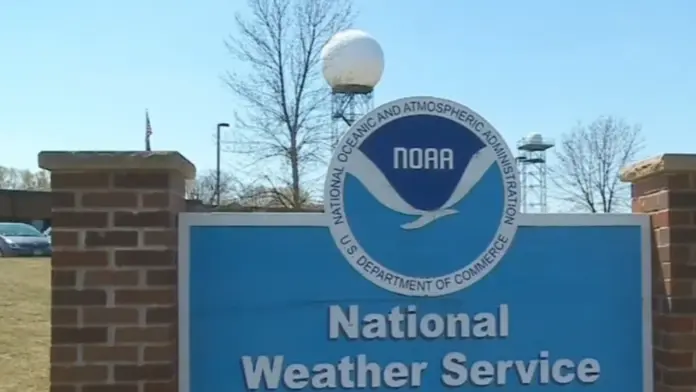The National Weather Service (NWS) recently suspended its translated weather warnings, depriving millions of non-English speakers nationwide of vital emergency information. The abrupt decision came after a contract with an artificial intelligence translation agency lapsed, sparking concern in border towns such as Laredo, Texas, where language diversity reigns supreme.
Contract Expiration Mutes Multilingual Warnings
The NWS’s translation service was made possible by a contract with LILT, an artificial intelligence-driven translation business. As of April 1, 2025, that contract lapsed, and with it, so did real-time translations of weather alerts. In an interview, NWS spokesman Michael Musher explained that the agency was forced to “pause” all non-English alerts because of the expiration of the contract funding. Further information on any replacement or patch has not been released.
In an internal administrative message to NWS substations, the agency stated the cause of the disruption explicitly: “Because current contract funding has expired, NWS suspended the automated translation service for our products until further notice.”
Also read: Kanye West Shocking Confession About Sexual Relationship with Cousin
Laredo: A City Left in the Dark
In Laredo, a U.S.-Mexico border town where 88.5% of the population aged 5 and above speak a language other than English at home, the effect is almost instantaneous and deadly. The most recent translated weather product was sent out on April 1 at 12:12 p.m., creating a linguistic gap when the severe weather season is heating up.
Citizens who depend on Spanish-language weather predictions now risk a widening communications chasm. Flood warnings, freeze warnings, excessive heat alerts, and even hurricane warnings could no longer be delivered to many members of the community in their language.
Dr. Carmen Pompa, director of the Bilingual Education Program for Laredo Independent School District, underscored the importance of language during emergency communications. “These translations are at the center of how we disseminate our information,” Pompa explained. “If we want to talk with the whole world, we need to offer the languages that enable awareness.
Pompa admonishes that with untranslated alerts, large portions of the population would not know that danger is present. This poses a particular issue in regions experiencing rapidly moving storms and flash flooding.
Communication Gap Creates Inequity
Multilingual accessibility campaigners are calling the break a regression in public safety equity. Though English-speaking members of the community will keep receiving live updates by way of television, radio, and phones. And, others will have to figure out complicated messages in a language in which they lack full proficiency or even completely miss the message.
For some families, elderly members, or those with poor literacy in English, the removal of these translated updates may be the difference between prompt evacuation and disastrous outcomes.
Also read: Third Round Of April Social Security Payments To Arrive On 23rd Of April: Find Out Who Will Receive How Much
NWS Provides No Immediate Solutions
Despite increasing backlash, the National Weather Service has provided no timeline or alternative solution for resuming non-English alerts. Without automatic translation, the process is slower and more time-consuming, and the agency’s current staffing levels might not permit manual translations of all alerts.
No word has yet been forthcoming on whether the NWS will renew its contract with LILT or look elsewhere. This leaves people in communities that rely upon speedy, understandable, and reliable weather messaging all the more worried.
Multilingual Alerts Are More Than a Convenience
Multilingual weather warnings is not a luxury but they are a lifesaver for millions. From coastal hurricanes to inland tornadoes, warnings in a person’s home language provide them with the time and clarity to respond. Taking that tool away makes weather crises more deadly for those already at the edges.
For cities like Laredo, this hiatus threatens to further expand the communication disconnect between government services and the people served. As weather patterns are increasingly becoming more volatile and extreme, accessibility is a top consideration.
A Wake-Up Call for Federal Communication Policy
The decision to suspend non-English alerts reveals a deeper problem: the absence of backup plans or permanent multilingual approaches in federal emergency communication systems. In a nation as linguistically diverse as the United States, depending only on contract-based translation services may no longer be feasible or secure.
Language access in public safety isn’t a choice but it’s a fundamental right in a multilingual democracy. Communities, educators, and public safety advocates are now calling on the federal government to move fast and restore these critical services before disaster hits.








